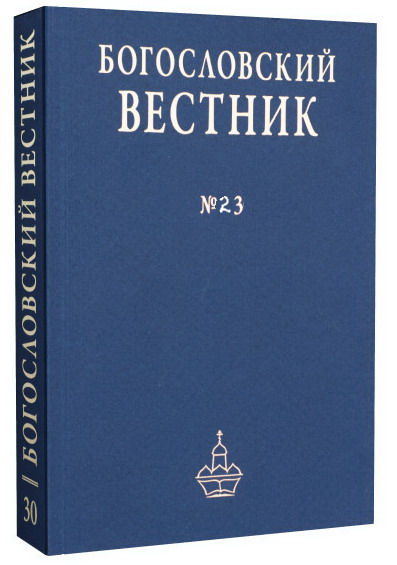Ap. Paul’s idea about the “new creation” (καινὴ κτίσις) in Christ in the epistle to the Galatians
Keywords:
exegesis of the New Testament, Epistle to the Galatians, new creation (καινὴ κτίσις), New Testament eschatology, Judaic apocalyptic literatureAbstract
After explaining the understanding of the apostolic concept of “new creation” in the tradition of the Holy Fathers and in our own biblical researchers, the author returns to the understanding of this idea among Western researchers. A few instances of apostolic interpretation of the phrase καινὴ κτίσις are examined, which appeared in the works of the main Western exegesis, which offered their own view on the understanding of this phrase. The first interpretation – an anthropological one, which was common among foreign biblical scholars and is in accordance with the Early Christian tradition of the Holy Fathers, comes down to interpreting the new creation as a “new being”, when in Christ the grace filled condition of the new creation becomes an immutable reality. The second interpretation sees in καινὴ κτίσις (new creation) a return of all creation to a original blessed state, to a new heaven and new earth, which were described by the Prophet Isiah. The third regards καινὴ κτίσις as “new community”, a new church community, which consists of both Jews and gentiles, a resurrection and a transfiguration of the righteous. Finally, the author concludes, that these interpretations do not contradict the commentaries of the Holy Fathers, and there is no need to choose only one, having excluded the rest, because they can be seen as individual aspects of St. Paul’s theology.
Downloads
References
Галахов И. И., прот. Послание св. апостола Павла к Галатам. Казань, 1897.
Глубоковский Н. Н. Благовестие христианской свободы в послании св. апостола Павла к Галатам. Сжатый обзор. София, 1935.
Глубоковский Н. Н. Учение св. апостола Павла о христианской жизни «в Духе» и его самобытная независимость // ХЧ. 1904. № 6. С. 751-787.
Иванов А. В. Руководство к изучению Священного Писания Нового Завета. Обозрение Четвероевангелия, книги Деяний Апостольских, Апостольских посланий и Апокалипсиса. М., 2008.
Казинов В. А. Идея «нового творения» в послании ап. Павла к Галатам // Россия, Запад и Восток: диалог культур: сб. статей Первой Международной молодежной научно-практической конференции / Ред. С. К. Гураль. Томск, 2014. С. 21-23.
Казинов В. А. Учение о богосыновстве и «новом творении» как ключевые аспекты сотериологии апостола Павла на примере его Послания к Галатам // Труды Коломенской духовной семинарии. Т. 10 / Гл. ред. еп. Зарайский Константин. Коломна, 2015. С. 53-63.
Кассиан (Безобразов), еп. Сыны Божии // Вестник русского студенческого христианского движения. 1954. № 31.1. С. 4-11.
Левисон Дж. Творение, новое творение // Словарь Нового Завета / Ред. Р. Мартин, Д. Рейд, К. Эванс. М., 2010. Т. 2. Мир Нового Завета. С. 778-779.
Муравьев В. Новый человек - καινὸς ἄνθρωπος - по учению ап. Павла // Вера и Разум. 1904. № 22. С. 519-528; № 23. С. 613-622.
Caird G. B., Hurst L. D. New Testament Theology. Oxford, 1994.
Dunn J. D. G. A Commentary on the Epistle to the Galatians. L., 1993.
Hubbard M. V. New Creation in Paul’s Letters and Thought. Cambridge, 2004.
Иероним Стридонский, блж. Творения блаженного Иеронима Стридонского: в 17 ч. К., 1903. Ч. 17.
Иоанн Златоуст, свт. Творения святого отца нашего Иоанна Златоуста, архиепископа Константинопольского, в русском переводе: в 12 т. СПб., 1904. Т. 10. В 2 кн.
Феодорит Кирский, блж. Творения блаженного Феодорита епископа Кирского. М., 2003.
Феофилакт Болгарский, блж. Благовестник: в 2-х ч. Минск, 2006. Ч. 2. Толкование на Апостол.
Downloads
Published
How to Cite
License

This work is licensed under a Creative Commons Attribution-ShareAlike 4.0 International License.








